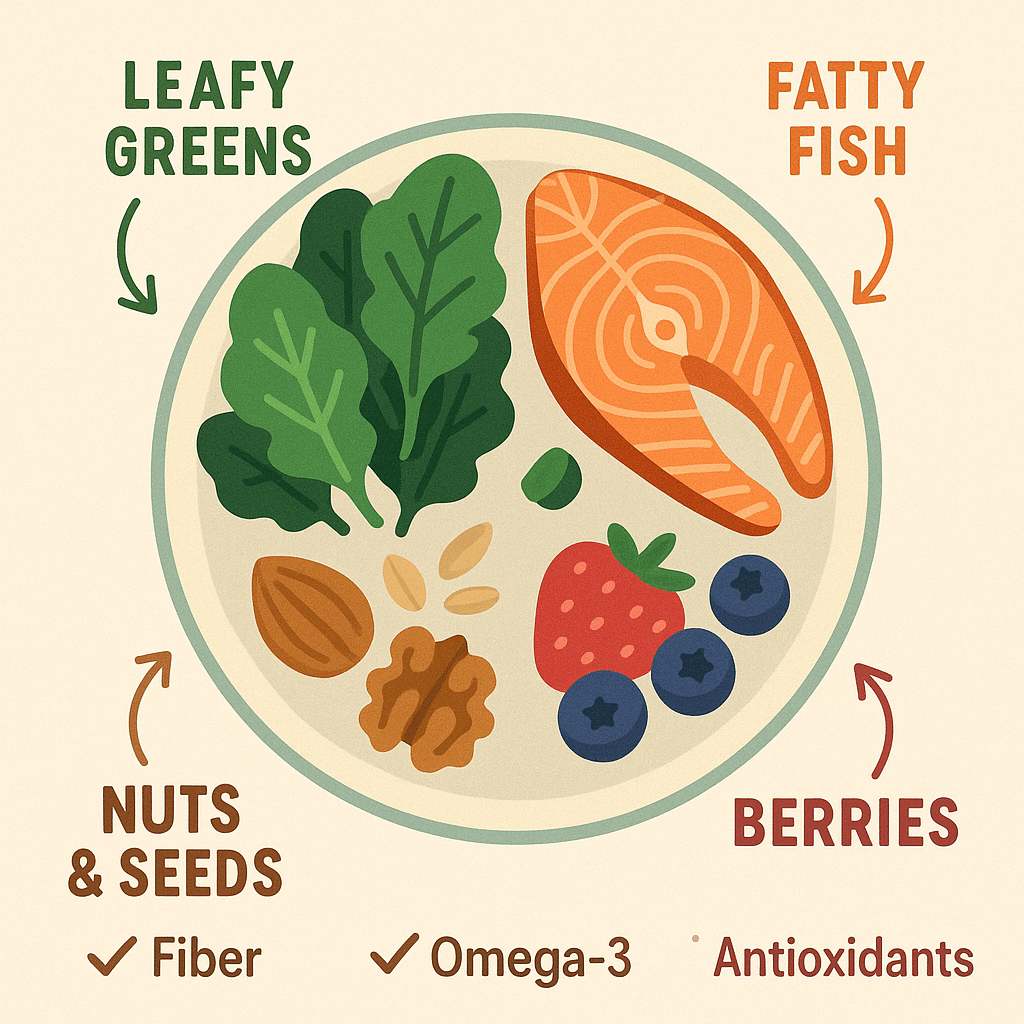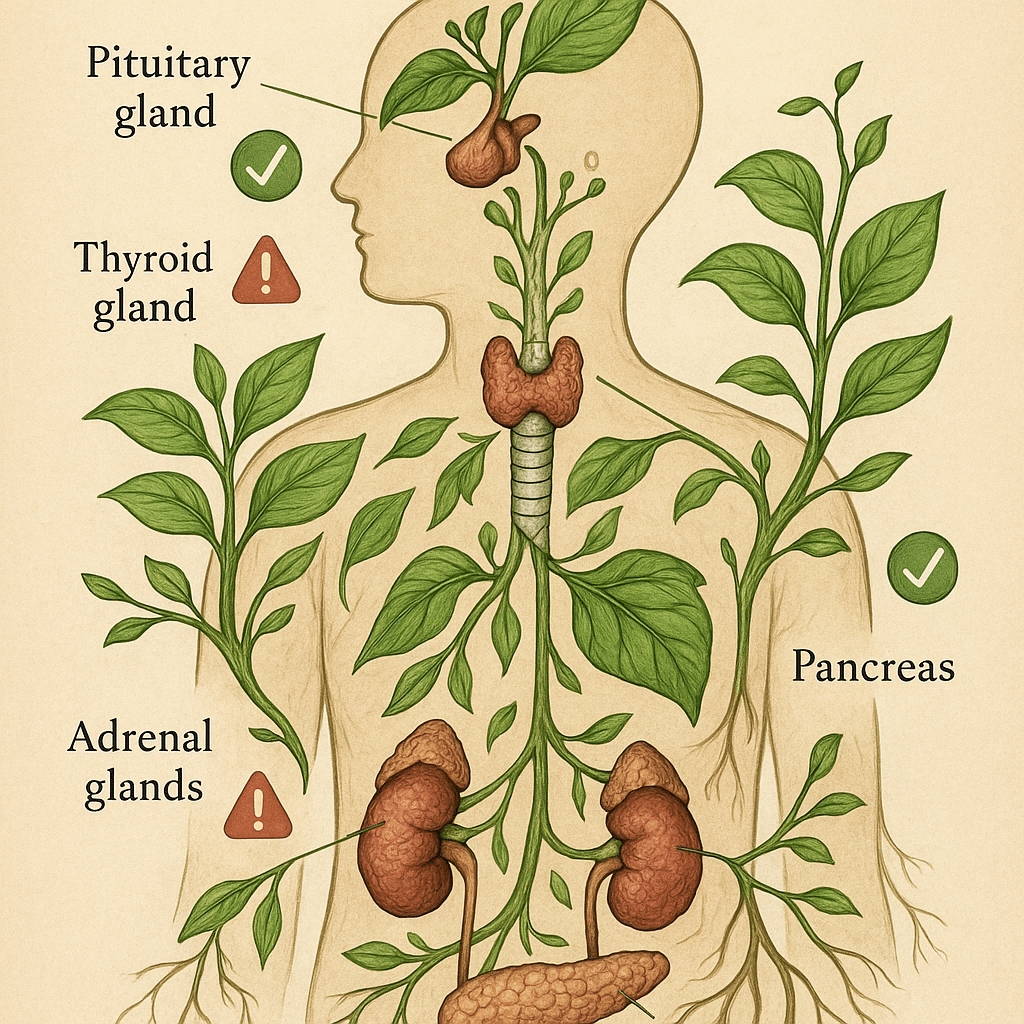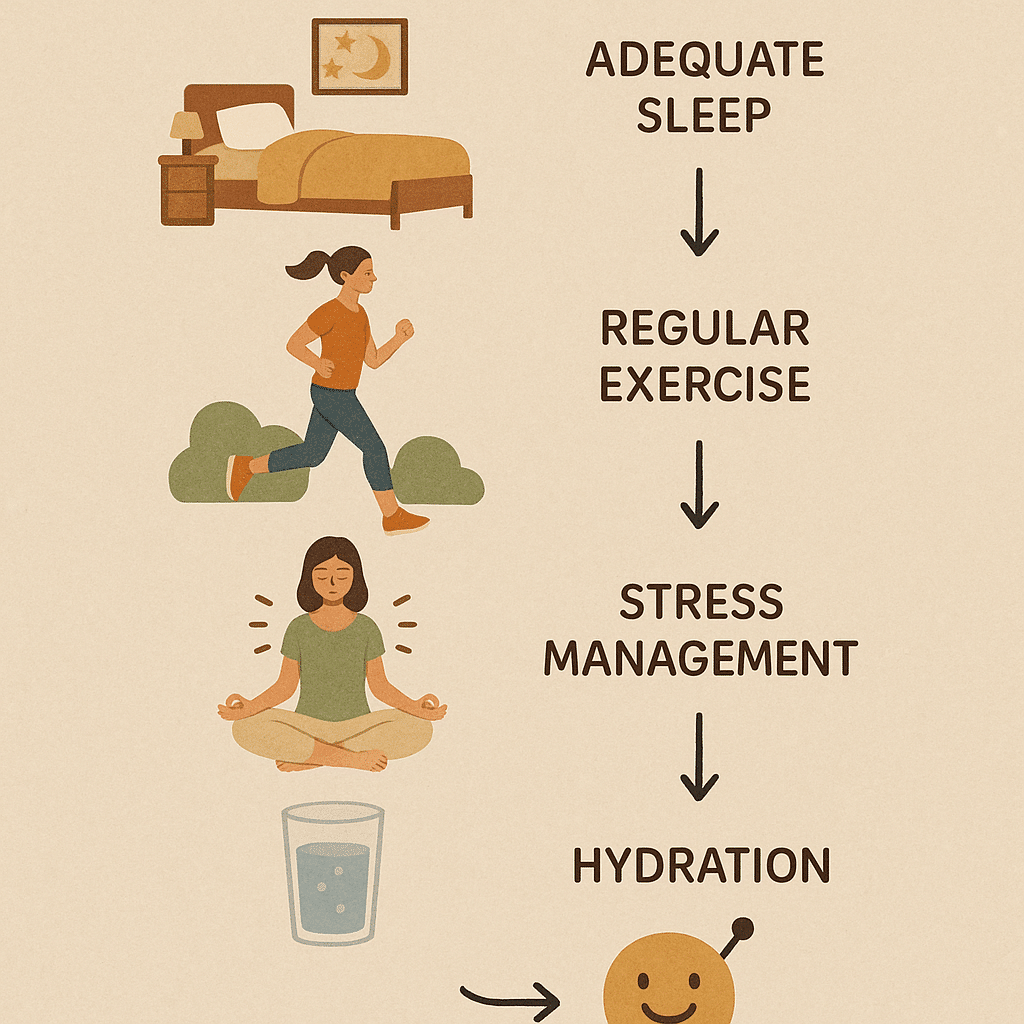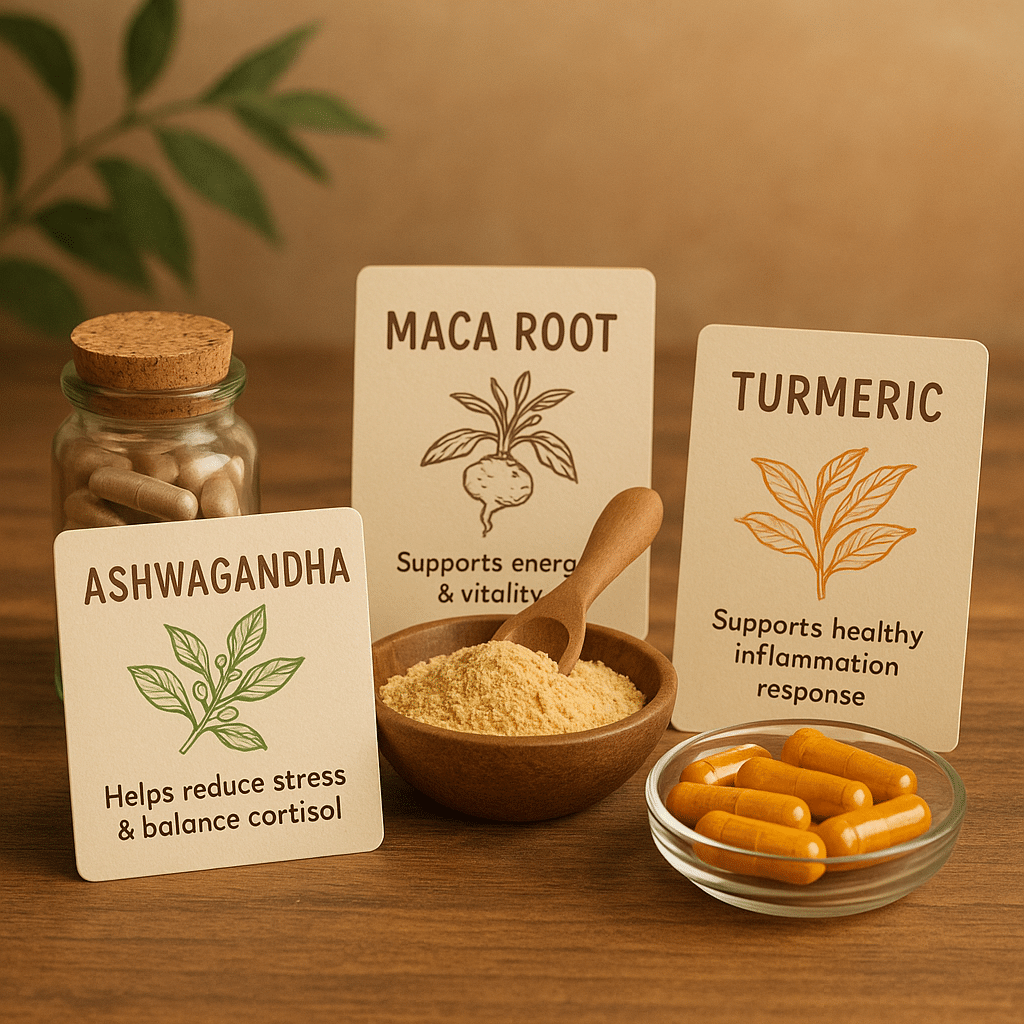How to Balance Hormones Naturally: A Complete Guide for Health-Conscious Adults

If you’re reading this, chances are you’ve felt the impact of hormonal imbalances at some point. From unexplained fatigue to mood swings or stubborn weight gain, hormones quietly influence almost every aspect of our wellbeing. So, how to balance hormones naturally becomes a vital question for anyone seeking lasting wellness without heavy reliance on medications or synthetic treatments. I’ve personally poured countless hours into researching and experiencing natural approaches that truly work—and I’m here to walk you through them.
In this extensive guide, we’ll dive into the basics of hormones, explore their complex interaction with your body, and uncover easy-to-adopt nutrition and lifestyle strategies. You’ll learn about supplements, natural remedies, and smart habits that can harmonize your system, whether you’re trying to balance hormones naturally at home or looking for specific support after 40. We’ll also clear up common myths about quick fixes and essential oils, helping you make informed decisions based on science and experience. By the end, you’ll be equipped with the knowledge and tools to nurture your endocrine health with confidence and grace.
Understanding Hormones and Their Role in Your Health

What Are Hormones?
Hormones are chemical messengers produced by our endocrine system, traveling through the bloodstream to regulate vital processes like metabolism, growth, mood, sleep, and reproduction. You can think of them as your body’s communication network—without them, cells wouldn’t know when and how to perform their tasks. Key hormones such as estrogen, progesterone, testosterone, cortisol, insulin, and thyroid hormones keep your body balanced.
Imagine hormones as the orchestra conductors of your biology. When they fall out of tune, dissonance arises—this is what we call hormone imbalance. Symptoms might include irregular periods, fatigue, anxiety, weight changes, or sleep problems. Recognizing these signs early helps you take control.
Key Hormone-Producing Glands and Their Functions
Your hormonal symphony originates from specific glands:
- Hypothalamus and Pituitary Glands: The master controllers. They signal other glands to release hormones.
- Thyroid Gland: Regulates metabolism and energy.
- Adrenal Glands: Produce cortisol and adrenaline, crucial for stress response.
- Pancreas: Controls insulin for blood sugar balance.
- Ovaries (in women) and Testes (in men): Produce sex hormones such as estrogen, progesterone, and testosterone.
Each gland plays a unique role, and harmony among them is essential for overall hormone balance.
Common Signs and Symptoms of Hormone Imbalance
Hormone imbalance manifests differently depending on which hormones are out of sync. Some common symptoms include:
- Irregular or painful menstrual cycles
- Weight gain or difficulty losing weight
- Fatigue and low energy
- Mood swings, anxiety, or depression
- Sleep disruptions or insomnia
- Hot flashes or night sweats
- Low libido
- Brain fog or difficulty concentrating
If you’re experiencing several of these, it might be your body’s call for hormonal support. The good news? Many natural ways can help restore balance.
The Science Behind Hormone Balance and Endocrine System Regulation

How Hormones Interact with the Body’s Systems
Hormones do not work in isolation—they influence and are influenced by nearly every system. For example, cortisol released from the adrenal glands affects your immune response, blood sugar levels, and even memory function. Insulin from the pancreas regulates glucose uptake essential for energy. When these hormones are out of balance, disruptions cascade throughout the body.
Understanding how hormones interact helps explain why balancing them naturally requires a multifaceted approach—involving diet, lifestyle, stress management, and sometimes supplementation.
The Impact of Circadian Rhythm on Hormones
Your circadian rhythm—the internal 24-hour clock—plays a vital role in hormone regulation. Hormones like melatonin (sleep hormone) peak at night, while cortisol typically rises in the morning, helping you wake up energized. Disturbing this rhythm through poor sleep patterns, night shifts, or excessive light exposure at night can disrupt hormone cycles.
Prioritizing sleep hygiene and regular sleep times is a powerful natural way to balance hormones effectively.
Nutrition Strategies: Best Foods to Balance Hormones Naturally

Protein’s Role in Hormone Production and Appetite Regulation
Protein isn’t just about muscle building; it’s crucial for hormone synthesis. Amino acids from dietary proteins are the building blocks for hormones including insulin, growth hormones, and neurotransmitters. Eating adequate protein with every meal helps stabilize blood sugar and supports energy levels. Think lean meats, poultry, eggs, legumes, and plant-based proteins like tofu or tempeh.
Healthy Fats Supporting Hormone Production (Omega-3s, Monounsaturated Fats)
Fats often get a bad rap, but healthy fats are essential for hormone balance. Hormones like estrogen and progesterone are synthesized from cholesterol, so including sources of Omega-3 fatty acids (like fatty fish, flax seeds, and walnuts) and monounsaturated fats (avocados, olive oil) supports hormone production and reduces inflammation. For example, DHA and EPA from fish oils modulate cortisol and promote adrenal health.
Cruciferous Vegetables and Estrogen Metabolism
Cruciferous veggies like broccoli, Brussels sprouts, cauliflower, and kale contain compounds like indole-3-carbinol that help your body metabolize estrogen safely. This is especially helpful for women looking for natural ways to balance estrogen and progesterone naturally and reduce hormone-related symptoms.
Reducing Sugar, Refined Carbs, and Alcohol for Hormonal Health
High sugar consumption and refined carbohydrates create blood sugar spikes followed by crashes, triggering insulin resistance—a main culprit in hormone imbalance. Alcohol, too, can disrupt liver function, impacting hormone detox pathways. Limiting these supports a stable hormonal environment.
Gut Health and Its Influence on Hormone Balance
The gut microbiome profoundly influences hormone regulation. Friendly bacteria help break down and recycle hormones like estrogen—a process called enterohepatic circulation. Eating fiber-rich foods, fermented foods (like yogurt, kefir, and sauerkraut), and prebiotic fibers supports a healthy gut environment, which is a natural way to balance hormones in women and men alike.
Lifestyle Changes to Balance Hormones Naturally

How Regular Exercise Improves Insulin Sensitivity and Hormonal Balance
Exercise is a game-changer for hormone balance. Physical activity improves insulin sensitivity, which helps regulate blood sugar and reduces the risk of hormonal disorders like PCOS. It also stimulates the release of endorphins, boosting mood and countering stress. Aim for a mix of aerobic exercise, strength training, and flexibility work.
The Importance of Quality Sleep for Hormonal Regulation
As mentioned, sleep is critical. During deep sleep, your body releases growth hormones and regulates cortisol levels. Poor sleep leads to higher cortisol and insulin resistance, derailing hormone balance. Try to get 7-9 hours of uninterrupted sleep and create a nighttime ritual free from screens and stimulants.
Stress Management Techniques to Reduce Cortisol and Support Adrenal Health
Chronic stress repeatedly triggers cortisol release, which can lead to adrenal fatigue and hormone disruption. Incorporating stress management techniques such as mindfulness meditation, yoga, deep breathing exercises, and journaling can lower cortisol naturally and support adrenal health.
Minimizing Exposure to Hormone-Disrupting Chemicals: Plastics, Personal Care, and Household Products
Everyday exposure to BPA, phthalates, and parabens in plastics, cosmetics, and cleaning products can interfere with your endocrine system—a modern challenge to hormonal harmony. Switch to glass containers, organic skincare, and natural household cleaners to reduce this hidden hormone imbalance cause.
The Power of Getting Outside: Vitamin D and Fresh Air for Hormonal Wellness
Sun exposure catalyzes Vitamin D production, which plays a role in regulating several hormones, including insulin and sex hormones. Spending time outdoors also helps reset your circadian rhythm, improving sleep and hormone patterns.
Natural Remedies and Supplements to Support Hormone Balance
Adaptogenic Herbs and Their Role in Supporting Endocrine Health
Adaptogens like ashwagandha, rhodiola, and holy basil help the body cope with stress and can normalize cortisol levels. Clinical studies show ashwagandha reduces stress and balances thyroid hormones, making these herbs a popular natural remedy for hormone imbalance in women and men.
Supplement Support: Vitamins, Minerals, and Essential Oils
Certain supplements can support your hormone health:
- Magnesium: aids in cortisol reduction and improves sleep quality.
- Vitamin B6: supports progesterone balance.
- Zinc: essential for thyroid function.
- Evening Primrose Oil: rich in gamma-linolenic acid, helps with estrogen metabolism.
- Essential oils such as clary sage or geranium can promote relaxation and mood balance. While not a cure, they can supplement other techniques effectively.
Do Essential Oils Help Balance Hormones Naturally?
Essential oils cannot replace medical treatment but can support relaxation and mood regulation, helping to indirectly balance hormones. Diffusing lavender or applying diluted clary sage oil during stressful times can be soothing. Make sure to use quality oils from trusted brands such as doTERRA.
Women’s Hormonal Health: How to Balance Estrogen and Progesterone Naturally
Tracking Menstrual Cycles to Understand Hormonal Patterns
Understanding your own cycle is vital for natural hormone balance. Tracking symptoms, basal body temperature, and menstrual flow can reveal imbalances and help tailor nutrition or lifestyle changes effectively.
Natural Approaches for Balancing Thyroid Hormones
Supporting thyroid health naturally involves selenium-rich foods (Brazil nuts), iodine (seaweed), and stress reduction. Avoid excessive soy and processed foods that can impair thyroid function.
How to Balance Hormones Naturally After 40
Hormone shifts during perimenopause and menopause require extra care. Focus on nutrient-dense foods, adaptogens, strength training to preserve muscle mass, and regular health screenings. Adjusting lifestyle to include mindfulness and better sleep becomes even more critical.
Detoxification and Hormone Balance: Supporting the Body’s Natural Detox Pathways
Foods and Habits That Support Hormone Detox
Including fiber, cruciferous vegetables, and antioxidant-packed fruits supports liver detoxification, which is essential as liver breaks down excess hormones.
Avoiding Toxins That Disrupt Hormone Detoxification
Reduce alcohol and processed foods, and avoid pesticides by choosing organic produce when possible. Staying hydrated aids detox pathways significantly.
Creating a Sustainable Hormone-Balancing Lifestyle
Daily Rituals and Mindfulness Practices for Long-Term Hormonal Health
Incorporate morning stretches, gratitude journaling, or meditation to lower stress and create balance.
Prioritizing Hydration and Air Quality
Water aids in hormone transportation and detoxification. Using air purifiers or spending time in nature improves air quality, supporting respiratory and immune health.
Combining Diet, Exercise, Sleep, and Stress Management for Optimal Results
A holistic approach is the most effective way to balance hormones naturally. These pillars work synergistically to restore endocrine harmony and lasting wellness.
Fast Acting Tips: How to Balance Hormones Naturally Fast
Quick Fixes Versus Sustainable Changes
It’s tempting to look for fast results, but hormone balance takes time. Drink plenty of water, reduce caffeine, enjoy a brisk walk outside, and practice deep breathing to see quick relief. Sustainable change comes from consistent lifestyle adjustments.
Sample One-Week Hormone-Balancing Plan
| Day | Morning | Afternoon | Evening |
|——–|—————————————–|———————————–|———————————|
| Monday | Protein-rich breakfast with greens | 30 min walking + nuts snack | Wind down with herbal tea and journaling |
| Tuesday| Omega-3 smoothie with flax and berries | Strength training + salad lunch | Early sleep, no screens |
| Wednesday| Fermented yogurt + seeds | Stress mindfulness session | Cruciferous vegetable stir-fry |
| Thursday| Egg and avocado on whole grain toast | 20 min yoga | Magnesium supplement + bath |
| Friday | Oatmeal with walnuts and cinnamon | Outdoor walk + lean protein meal | Diffuse lavender essential oil |
| Saturday| Rest day, gentle stretching | Hydrating soups and salads | Meditation and quality sleep |
| Sunday | Prep healthy meals for next week | Reflective journaling | Herbal tea and early bedtime |
When to Seek Professional Help: Integrating Natural Approaches with Medical Guidance
Though natural methods are powerful, severe hormone imbalances or symptoms need medical diagnosis and treatment. Blood tests, imaging, or consultations with endocrinologists or gynecologists can guide therapy plans, often combining natural and conventional approaches for best outcomes.
Key Points
- Hormones regulate vital bodily functions; imbalance causes diverse symptoms.
- Nutrition, especially protein, healthy fats, and cruciferous vegetables, supports hormone production and metabolism.
- Regular exercise, quality sleep, and stress management reduce cortisol and improve hormone function.
- Limiting exposure to hormone-disrupting chemicals aids endocrine health.
- Adaptogenic herbs and specific supplements support natural hormone balance.
- Tracking menstrual cycles helps women understand and manage hormone patterns.
- Detoxification through liver support and toxin avoidance assists hormone balance.
- Creating sustainable healthy habits is key for lasting hormonal wellness.
- Quick fixes can ease symptoms but lasting balance requires consistent lifestyle changes.
- Consult professionals for significant symptoms or persistent imbalances.
Frequently Asked Questions
1. How can I balance hormones naturally at home without supplements?
Focusing on diet rich in proteins and healthy fats, regular physical activity, stress-reduction techniques like meditation, and maintaining regular sleep patterns are some of the most effective natural ways to balance hormones at home.
2. What are the best foods to balance hormones naturally?
Lean proteins, omega-3 rich foods (like salmon), cruciferous vegetables, fiber-rich fruits, and seeds like flax and chia are excellent choices supporting hormone production and metabolism.
3. Do essential oils help balance hormones naturally?
Essential oils like clary sage and lavender can support relaxation and mood, thereby indirectly helping hormone balance. However, they should complement—not replace—other natural treatments or medical advice.
4. How do I balance hormones naturally after 40?
Adopt a nutrient-rich diet, incorporate strength training, manage stress proactively, track hormonal changes, and consider adaptogens and supplements under medical guidance to balance hormones naturally post-40.
5. What lifestyle tips can I follow to balance hormones naturally?
Prioritize quality sleep, minimize exposure to plastics and toxins, engage in regular physical activity, manage stress with mindfulness or relaxation techniques, and spend time outdoors to enhance vitamin D and circadian rhythm.
Conclusion
Balancing your hormones naturally is not only possible but deeply rewarding when approached thoughtfully and holistically. From understanding the inner workings of your endocrine system to nourishing yourself with the best foods and fostering healthy habits, every step you take builds a resilient foundation for lasting wellness. Remember, it’s about making manageable lifestyle changes that honor your body’s rhythms and needs—whether you’re 25, 45, or beyond.
Don’t rush the process or chase quick fixes. Instead, embrace sustainable strategies that reduce stress, support detox, improve sleep, and strengthen your body inside and out. If you ever feel overwhelmed or suspect significant hormonal disruption, never hesitate to seek professional help. Your health is worth that care.
Start today by integrating just one or two of the methods we’ve discussed—perhaps swapping sugary snacks for walnuts or dedicating 10 minutes to deep breathing—and watch how these small choices ripple into profound improvements. Here’s to your balanced hormones and vibrant health journey ahead!
For trusted supplements and herbs, I often recommend Thorne Research, Gaia Herbs, and doTERRA. Always consult with your healthcare provider before starting any new regimen.
This guide is crafted with your health and natural wellness journey in mind—empowering you with trusted, evidence-based insights to take control of your hormonal health.

